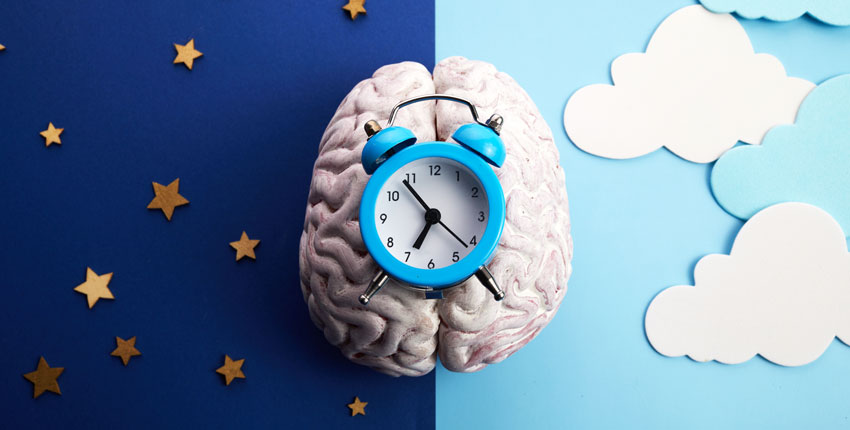Sleep is a fundamental aspect of human existence, vital for physical and mental well-being. However, millions of people around the world suffer from sleep disorders, which can significantly impact their mental health. This article explores the intricate relationship between sleep disorders and mental health, shedding light on the causes, consequences, and treatment approaches to address these issues effectively.
Understanding Sleep: Basics and Functions
Sleep is a complex process with different stages, including non-REM sleep and REM sleep, which play crucial roles in maintaining physical and cognitive health. Circadian rhythms, often referred to as the body’s internal clock, regulate our sleep-wake cycles. Dreaming during REM sleep is thought to have a significant impact on emotional processing and memory consolidation, contributing to mental well-being.
Common Sleep Disorders
There are several types of sleep disorders, with insomnia being one of the most prevalent. Insomnia can be acute or chronic and is often associated with stress, anxiety, or depression. Sleep apnea, another common disorder, leads to intermittent breathing interruptions during sleep, affecting oxygen levels and leading to daytime fatigue and mood disturbances. Narcolepsy is characterized by sudden and uncontrollable bouts of sleepiness, impacting daily functioning and causing emotional challenges. Restless Leg Syndrome (RLS) causes discomfort in the legs, making it difficult to fall and stay asleep, contributing to mood imbalances.
Bidirectional Relationship: Sleep Disorders and Mental Health
The connection between sleep disorders and mental health is bidirectional. On one hand, sleep disorders can contribute to the development of mental health issues. Chronic sleep deprivation can disrupt emotional regulation, impair cognitive function, and even act as a trigger for various mental illnesses. On the other hand, mental health conditions can disrupt sleep patterns. Anxiety and depression, for example, often lead to insomnia or excessive sleeping, further exacerbating the mental health challenges.
Neurobiological Mechanisms Linking Sleep and Mental Health
Neurotransmitters play a vital role in regulating both sleep and mood. Serotonin and dopamine, among others, are essential in promoting healthy sleep and emotional well-being. The Hypothalamic-Pituitary-Adrenal (HPA) axis, responsible for stress response, also influences sleep patterns and mental health. Disruptions in the circadian rhythm have been linked to neurological consequences and an increased risk of mental health disorders.
Diagnosing Sleep Disorders and Mental Health Assessment
Accurate diagnosis is crucial for effective treatment. Sleep disorders are diagnosed through sleep monitoring and assessment tools such as polysomnography. Mental health assessments involve evaluating a person’s emotional state and identifying any underlying mental health conditions that may contribute to sleep disturbances.
Treatment Approaches
Cognitive Behavioral Therapy for Insomnia (CBT-I) is a highly effective treatment for insomnia. It helps individuals identify and modify behaviors and thoughts that hinder sleep, promoting better sleep hygiene and emotional well-being. Medication options, such as sleep aids and antidepressants, can be prescribed for specific sleep disorders and underlying mental health conditions. However, a comprehensive approach often includes lifestyle changes and stress management techniques to address both sleep and mental health issues.
Lifestyle Interventions for Better Sleep and Mental Health
Promoting healthy sleep habits is essential for maintaining good mental health. Creating a conducive sleep environment, establishing sleep-inducing rituals, and maintaining a regular sleep schedule are key components of good sleep hygiene. Exercise and nutrition play crucial roles in regulating sleep patterns and mood. Stress reduction techniques, such as mindfulness and meditation, can alleviate anxiety and improve sleep quality.
Seeking Professional Help
It is essential to seek timely assistance if you are experiencing sleep disturbances or mental health issues. Consulting a sleep specialist or mental health professional can provide valuable insights and personalized treatment plans tailored to your specific needs.
The Future of Sleep and Mental Health Research
Ongoing studies and advancements in the field of sleep and mental health research are promising. Researchers are exploring integrative approaches that target both sleep disorders and mental health conditions simultaneously, offering comprehensive solutions for individuals struggling with these issues.
Conclusion
The connection between sleep disorders and mental health is undeniable. Addressing sleep disturbances can have a significant impact on emotional well-being, while improving mental health can lead to better sleep quality. By understanding the intricate relationship between sleep and mental health and adopting appropriate treatment strategies, we can promote a healthier and happier life.
Frequently Asked Questions
- How do sleep disorders impact mental health?Sleep disorders can disrupt emotional regulation, cognitive function, and act as triggers for mental illnesses, leading to mood imbalances and challenges in daily life.
- Can insomnia be a symptom of an underlying mental health issue?Yes, chronic insomnia is often associated with stress, anxiety, depression, and other mental health conditions.
- What are the common treatments for sleep apnea and its effects on mental well-being?Treatments for sleep apnea include continuous positive airway pressure (CPAP) therapy, lifestyle changes, and surgery. Treating sleep apnea can improve mood and cognitive functioning.
- How does depression affect sleep patterns?Depression can lead to either insomnia or excessive sleeping, disrupting the sleep-wake cycle and further impacting mental health.
- Is there a connection between anxiety disorders and nightmares?Yes, anxiety disorders can lead to frequent nightmares, contributing to sleep disturbances and emotional distress.
- What are the neurobiological mechanisms linking sleep and mood regulation?
 Neurotransmitters like serotonin and dopamine play vital roles in both sleep regulation and mood stabilization.
Neurotransmitters like serotonin and dopamine play vital roles in both sleep regulation and mood stabilization. - Can lifestyle changes improve sleep quality and mental health?Yes, adopting healthy lifestyle habits, including exercise, nutrition, and stress reduction techniques, can positively impact both sleep and mental well-being.
- What role does circadian rhythm disruption play in mental health issues?Circadian rhythm disruptions can lead to an increased risk of mental health disorders due to the close relationship between sleep and mental well-being.
- Are there natural remedies for restless leg syndrome (RLS) and its impact on emotional well-being?Yes, certain lifestyle changes, such as regular exercise and avoiding stimulants, can alleviate RLS symptoms and improve emotional well-being.
- How does the hypothalamic-pituitary-adrenal (HPA) axis influence sleep and mental health?The HPA axis is responsible for the stress response and can impact both sleep patterns and mental health when dysregulated.

Greetings and welcome to my corner of the digital realm! I’m Ethan Harrington, a dedicated and passionate professional in the field of therapy psychology. My journey through the intricate landscapes of the human mind, emotions, and dreams has led me to this point, where I’m excited to share my insights, knowledge, and experiences with you. See this

